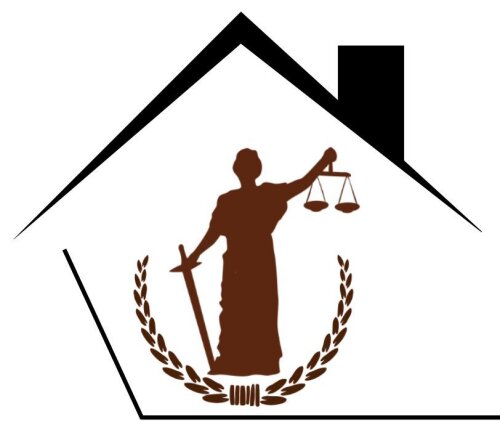Best International Trade Law Lawyers in Santa Marta
Share your needs with us, get contacted by law firms.
Free. Takes 2 min.
List of the best lawyers in Santa Marta, Colombia
About International Trade Law in Santa Marta, Colombia
International Trade Law in Santa Marta, Colombia, encompasses the rules and regulations governing the movement of goods, services, and capital across national borders. Santa Marta, as a port city located on Colombia’s Caribbean coast, serves as a significant hub for international commerce, particularly in exports of agricultural, industrial, and raw materials. International Trade Law here aligns with national regulations, including Colombian customs laws, international treaties ratified by Colombia, and the regional agreements in which Colombia is a participant, such as the Free Trade Agreements (FTAs) and treaties through organizations like the Andean Community (CAN) and the World Trade Organization (WTO).
Businesses and individuals involved in importing and exporting goods must comply with local, national, and international regulatory frameworks. This legal field covers aspects such as customs operations, tariffs, import-export procedures, free trade zone benefits, trade disputes, and anti-dumping measures, all of which are critical in a major port city like Santa Marta.
Why You May Need a Lawyer
Many companies, entrepreneurs, and individuals encounter complex legal issues arising from international trade activities in Santa Marta. Common situations where specialized legal assistance is vital include:
- Drafting and negotiating international sales contracts
- Handling customs clearance disputes and delayed shipments
- Ensuring compliance with import-export regulations and documentation
- Managing intellectual property rights in cross-border transactions
- Resolving conflicts with foreign partners, buyers, or suppliers
- Challenging unfair trade practices or anti-dumping measures
- Seeking guidance on the benefits and obligations of using local free trade zones
- Understanding the application of tariffs or trade sanctions
A lawyer specialized in International Trade Law can help navigate these challenges, minimize legal risks, and facilitate successful business operations in Santa Marta’s dynamic trade environment.
Local Laws Overview
Santa Marta’s port operations and trade activities are regulated by Colombian national laws and supplemented by international standards due to treaty obligations. Key aspects relevant to International Trade Law in Santa Marta include:
- Customs Code: Colombia’s General Customs Statute (Decree 1165 of 2019) defines procedures for imports, exports, customs duties, and penalties.
- Tariffs and Taxes: Import and export activities are subject to tariffs as set by the Ministry of Commerce, Industry and Tourism, and collection is monitored by the national DIAN (Tax and Customs Authority).
- Free Trade Agreements (FTAs): Colombia is party to multiple FTAs which affect duty rates, procedural requirements, and dispute resolution.
- Free Trade Zones: Santa Marta has free trade zones providing tax and customs benefits for companies engaged in international commerce.
- Sanctions and Trade Controls: Certain goods may require special licenses, and some transactions are restricted or controlled due to security or policy concerns.
- International Arbitration: Many cross-border commercial disputes are subject to arbitration in accordance with international conventions ratified by Colombia.
Understanding both local and global regulations is crucial for successful and lawful international trade operations in Santa Marta.
Frequently Asked Questions
What documents are required to import goods into Santa Marta?
To import goods, you generally need an invoice, a bill of lading, a certificate of origin (if required), a packing list, and a customs declaration submitted to DIAN. Some products may require import licenses or compliance certifications.
What are the benefits of doing business in a free trade zone in Santa Marta?
Companies in free trade zones can benefit from reduced or deferred customs duties, exemption from value-added tax (VAT) on imports, simplified customs procedures, and enhanced infrastructure. These zones are ideal for businesses with significant export or import activities.
Can foreign companies open branches and trade through Santa Marta?
Yes, foreign companies can establish subsidiaries or branches in Colombia and operate through the Santa Marta port. They must register with the local Chamber of Commerce, comply with tax obligations, and obtain necessary business licenses.
How can I resolve a dispute with an overseas supplier or buyer?
Disputes can often be resolved through negotiation, mediation, or international arbitration, especially if specified in your contract. Colombian law recognizes and enforces many international arbitral awards.
Are there restrictions on the types of goods I can import or export?
Yes, certain goods such as firearms, chemicals, endangered species, and agricultural products may have restrictions or require specific permits. Always consult with DIAN or legal counsel before proceeding.
What taxes and duties apply to imports?
Import duties, value-added tax (VAT), and other levies may apply depending on the type of product, country of origin, and applicable trade agreements. Duty rates are established by Colombia’s Customs Tariff, which is updated regularly.
What should I do if my goods are seized or delayed by customs?
Seek legal assistance immediately. A lawyer can help you address documentation issues, respond to alleged infractions, or appeal customs decisions.
How do Free Trade Agreements impact my international business?
FTAs can reduce or eliminate tariffs, simplify customs procedures, and provide greater legal security for your international transactions. Your eligibility depends on product origin and compliance with agreement conditions.
Do I need an import or export license?
Many goods can be traded without specific licenses, but certain products require authorization from relevant authorities. Check the latest regulations or seek legal advice if unsure.
How can I protect my intellectual property in cross-border trade?
Register your trademarks, patents, or copyrights with Colombia’s SIC (Superintendence of Industry and Commerce) and include IP clauses in your international contracts. Legal counsel can assist in enforcement and dispute resolution.
Additional Resources
If you need further information or support regarding International Trade Law in Santa Marta, the following resources may be helpful:
- DIAN (Dirección de Impuestos y Aduanas Nacionales): Responsible for customs and tax procedures in Colombia.
- Ministry of Commerce, Industry and Tourism: Regulates foreign trade, issues regulations, and manages trade agreements.
- Santa Marta Chamber of Commerce: Guidance on business registration, permits, and local trade regulations.
- ProColombia: Offers support for exporters and companies interested in investing or trading internationally.
- Superintendence of Industry and Commerce: Regulates intellectual property matters for businesses.
Next Steps
If you need legal assistance concerning International Trade Law in Santa Marta, Colombia, consider the following steps:
- Assess your specific legal needs or the particular trade issue you face.
- Gather all relevant documentation, such as contracts, shipping documents, and correspondence.
- Consult a lawyer with experience in International Trade Law, ideally one familiar with local regulations and the realities of the port of Santa Marta.
- Request an initial consultation to evaluate your options and outline a strategy adapted to your business goals or legal challenges.
- Stay informed about changes in local and international regulations that may affect your business.
Taking a proactive approach and relying on specialized legal guidance can ensure smooth, compliant, and successful participation in international trade through Santa Marta.
Lawzana helps you find the best lawyers and law firms in Santa Marta through a curated and pre-screened list of qualified legal professionals. Our platform offers rankings and detailed profiles of attorneys and law firms, allowing you to compare based on practice areas, including International Trade Law, experience, and client feedback.
Each profile includes a description of the firm's areas of practice, client reviews, team members and partners, year of establishment, spoken languages, office locations, contact information, social media presence, and any published articles or resources. Most firms on our platform speak English and are experienced in both local and international legal matters.
Get a quote from top-rated law firms in Santa Marta, Colombia — quickly, securely, and without unnecessary hassle.
Disclaimer:
The information provided on this page is for general informational purposes only and does not constitute legal advice. While we strive to ensure the accuracy and relevance of the content, legal information may change over time, and interpretations of the law can vary. You should always consult with a qualified legal professional for advice specific to your situation.
We disclaim all liability for actions taken or not taken based on the content of this page. If you believe any information is incorrect or outdated, please contact us, and we will review and update it where appropriate.









